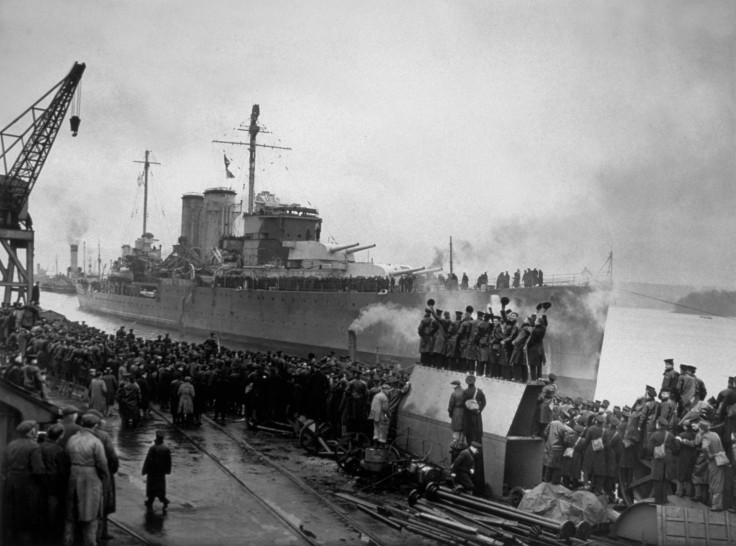Indonesian metal scavengers accused of dumping remains of WWII sailors in 'mass grave'
The bodies were reportedly bagged and buried near the port of Brondong in East Java.

Modern day metal scavengers in Indonesia have been accused of illegally dumping the bodies of World War II soldiers who died during the Battle of the Java Sea in 1942. According to a report by De Telegraaf, the wrecks of the Dutch and British vessels went missing in 2016 without any trace of permits for their salvage operations.
The wrecks were identified as missing when Dutch divers went to fix plaques to the remains and found most of them missing.
Indonesian news site Tirto.id spoke to an employee of one of the companies that undertook the recovery, who said that hundreds of human remains were buried at a 'mass grave' near the port of Brondong in East Java.
These include the remains of British sailors onboard the Royal Navy destroyers HMS Electra and HMS Encounter, which were attacked during the historic battle. Around 170 men died in the attack against the Japanese.
According to The Guardian, when the recovered shipwrecks were cut open, workers found skulls, jawbones, feet and hand bones, hips and ribs inside.
According to international law, it is forbidden to violate war graves, let alone store the ships, without the consent of the country of origin.
"The British government condemns the unauthorised disturbance of any wreck containing human remains. Under international law, naval warships and associated artefacts enjoy protection through Sovereign Immunity," a UK Ministry of Defence spokesman said.
"International law also provides for protection for war graves. Desecration of wrecks of war and merchant vessels causes distress to loved ones of those lost on board and is against international law.
"A military wreck should remain undisturbed and those who lost their lives onboard should be allowed to rest in peace."
Other British ships that met their end during the Java battle include the HMS Exeter, HMS Repulse, HMS Prince of Wales, HMS Banka, Tien Kuang [HMS Tien Kwang], HMS Kuala, Lock Ranza and HMS Thanet.
Dutch politician Andre Bosman also condemned the illegal operations, saying they raised "new questions and a feeling of great indignation". HNLMS De Ruyter, HNLMS Java and HNLMS Kortenaer were among Netherland's ships that were sunk in the region during the battle.






















